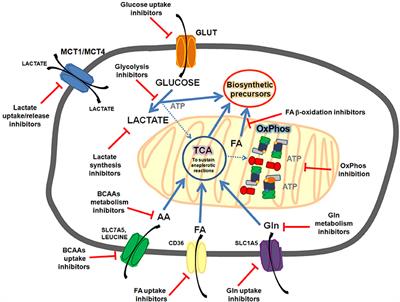EDITORIAL
Published on 20 Oct 2020
Editorial: Metabolism Meets Function: Untangling the Cross-Talk Between Signaling and Metabolism
doi 10.3389/fonc.2020.607511
- 1,604 views
- 3 citations
50k
Total downloads
220k
Total views and downloads
EDITORIAL
Published on 20 Oct 2020
REVIEW
Published on 16 Jul 2020

ORIGINAL RESEARCH
Published on 07 May 2020

ORIGINAL RESEARCH
Published on 05 May 2020

REVIEW
Published on 30 Apr 2020

ORIGINAL RESEARCH
Published on 17 Apr 2020
![In-vitro NMR Studies of Prostate Tumor Cell Metabolism by Means of Hyperpolarized [1-13C]Pyruvate Obtained Using the PHIP-SAH Method](https://www.frontiersin.org/files/myhome article library/520119/520119_Thumb_400.jpg)
REVIEW
Published on 31 Mar 2020

REVIEW
Published on 27 Mar 2020

REVIEW
Published on 24 Mar 2020

REVIEW
Published on 19 Mar 2020

MINI REVIEW
Published on 18 Mar 2020

REVIEW
Published on 06 Mar 2020
